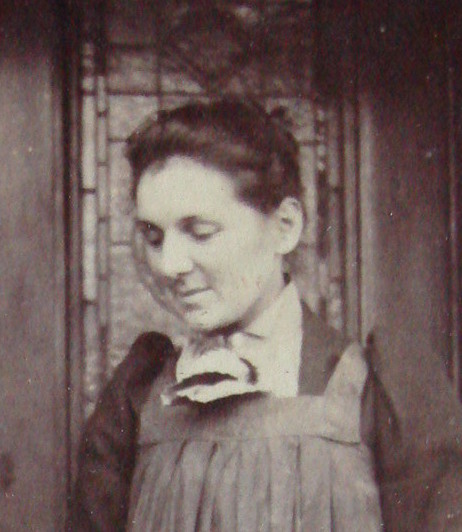Marion Wallace Dunlop (22 December 1864 – 12 September 1942) was a Scottish artist and suffragette, and the first British suffrage activist to go on hunger strike. She was committed to Holloway prison in July 1909 for printing an extract from the Bill of Rights on the wall of St Stephen’s Hall in the House of Commons, and on 5 July declared that she would take no food unless she was treated as a political prisoner and not as a common criminal.[1]
Marion’s tactic was quickly adopted by other suffragettes,[1] and leaders such as Mahatma Gandhi and the Irish Republican James Connolly, who used fasting to protest British rule of their respective countries.[2] She was a central figure in the Women’s Social and Political Union (WSPU), and helped to design some of the most influential processions of the UK suffrage campaign.[3]
Marion Wallace Dunlop was born at Leys Castle, Inverness, Scotland, on 22 December 1864, the daughter of Robert Henry Wallace Dunlop and his second wife, Lucy Wallace Dunlop (née Dowson; 1836–1914). She studied at the Slade School of Fine Art in London, and her paintings were displayed at the Royal Academy in 1903, 1905 and 1906. In 1899 she illustrated Fairies, Elves, and Flower Babies and The Magic Fruit Garden, in art-nouveau style.[1]
Women’s suffrage
Marion’s involvement in the suffrage movement began in 1900, when she subscribed to the Central Society for Women’s Suffrage, but the militancy of the WSPU persuaded her to switch her allegiance to that organisation from 1908. She was first arrested that same year, for obstruction at the House of Commons, and again in 1908 for leading a group of women in a march. In 1909 she was arrested a third time, for stenciling a passage from the Bill of Rights on a wall of the House of Commons, which read “It is the right of the subject to petition the King, and all commitments and prosecutions for such petitioning are illegal.”[1]
Hunger strike
Committed once again to Holloway prison, Marion decided on 5 July 1908 that she would go on hunger strike, in protest against being treated as a common criminal rather than a political prisoner.[a]Those considered to be political prisoners were allowed to wear their own clothes, have food sent in from outside, freely associate with other political prisoners, and were excused from doing prison work.[4] She subsequently wrote:
After ninety-one hours without food, Marion was released from custody.[1] Following her release Marion wrote to her friend the Reverend Frederick Hankinson, a member of the Men’s League for Women’s Suffrage, expressing her concern for the safety of young women who might try to follow her example, urging him to advise them to drink water and to “lie down all the time, to think of other things, and above all to keep their minds on the funny side of it all”.[5]
Later life
Marion was a pallbearer at Emmeline Pankhurst’s funeral in 1928, and took on the task of caring for Emmeline’s adopted daughter, Mary. She died on 12 September 1942 at Mount Alvernia Nursing Home in Guildford.[1]

